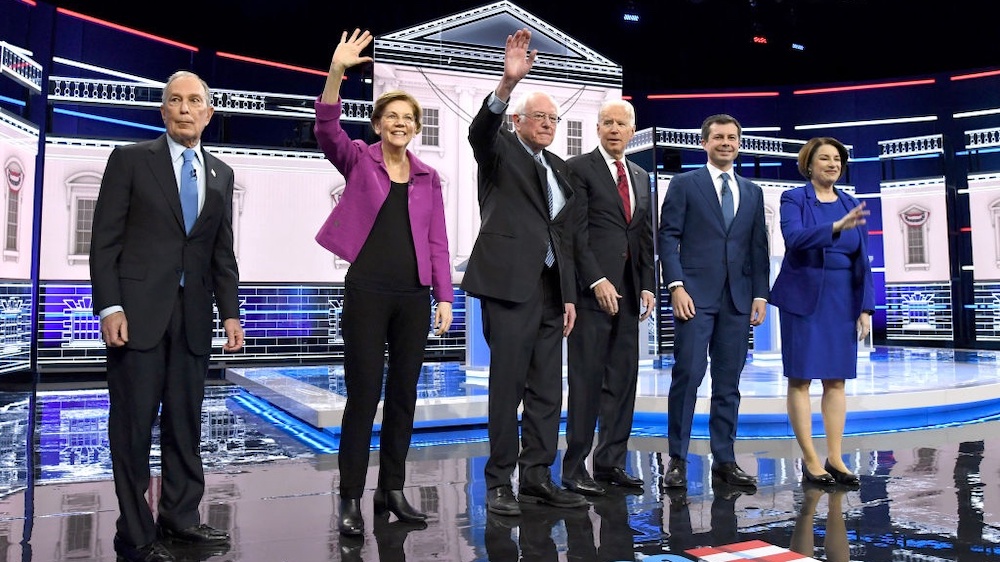If you’re interested in sharing your opinion on any cultural, political or personal topic, create an account here and check out our how-to post to learn more.
____
Redlining, busing, stop-and-frisk and who supported the 1994 crime bill are consistently being used to sway the support of Black voters, proving that too many politicians believe that racism is what drives us to the polls. Truth is, Black people would never vote for any politician, Republican or Democrat, if their participation was tied in who supported “racist” policies.
Former New York Mayor Michael Bloomberg is the most recent presidential candidate under the microscope of bigotry, accused of being a racist because of his use of stop-and-frisk. It is worth mentioning that former NYPD Commissioner Ray Kelly, who enforced stop-and-frisk under Bloomberg, was endorsed by President Obama to replace Janet Napolitano as the head of the Department of Homeland Security. In a 2008 interview, Bloomberg discussed how redlining was connected to the mortgage crisis, and now everyone from Senator Elizabeth Warren to media pundits are claiming that Bloomberg supports redlining — an unethical practice that allowed people to be denied housing loans because of their race — and that he believes had it not ended Americans could have avoided the crisis.
While watching the Nevada debate on February 19, the accusation of Bloomberg supporting redlining came up again. I took the time to watch the eight-minute-25-second video in which less than 10 seconds are dedicated to a discussion about redlining, and I do not believe Bloomberg was supporting the discriminatory practice.
In the video he says, “There was a lot of pressure on banks to make loans to everyone. Redlining is a term where banks took whole neighborhoods and said people in these neighborhoods are poor, they are not going to be able to pay off their mortgages, tell your salesman don’t go into those areas. And then Congress got involved, local elected officials as well, and said, ‘Oh, that’s not fair. These people should be able to get credit.’ And once you started pushing in that direction, banks started making more loans where the credit of the person buying the house was not as good as you would like.”
Bloomberg is clearly suggesting that the method used to end redlining became the genesis of banks habitually providing loans to people who could not afford them, not that ending the practice of redlining is at fault; it’s not the why it ended that he criticized, it is the how.
Unfortunately, Bloomberg was poorly equipped and appeared to not even attempt to clarify his statements, nor expose his opponents plan to resolve the impact redlining has had on Black people.
Many Black voters may be unaware that addressing the impact of redlining on Black people is part of some of the presidential candidates agenda. For instance, Senator Warren, who has been very critical of Bloomberg’s redlining comments, has a plan to build wealth for Black Americans through homeownership by establishing a “historic down payment assistance program targeted at families in formerly redlined areas.” But, there is a problem with such a plan. Only 28% of Black people currently live in formerly redlined areas.
The largest formerly redlined areas are now home to white and Latino people, meaning that those who were directly targeted (African Americans) by this racist housing policy would not actually benefit. Warren’s down payment program would go to 72% of non-Black residents. Focusing solely on formerly redlined areas as a strategy to address housing discrimination of the past will ultimately exclude the presently struggling Black neighborhoods and schools outside of the redline.
It is evident that the Black agenda by some candidates is obsolete and analytically unreliable, and at times historically misused. For instance, when former Senator Kamala Harris exposed former Vice President Joe Biden opposed busing, he too was painted as supporting racist ideology. What many people were not told, and what was not discussed by media pundits firing at Biden’s “poor record” on busing, is that in 1973 only nine percent of Black Americans polled chose busing as the best way to achieve school integration, meaning 91% of Black people did not think it would be effective. These questionable agendas, and the misrepresentation of history, are rarely, if ever, dissected in the media or on the debate stage. As a result, this leaves Black voters in the dark, blinded by the strategic use of racism to earn their vote.
Understanding how we got here is critical in correcting the sins of America’s past, but improving the lives of Black Americans today cannot be done with invalid, inaccurate and ineffective strategies that do not address the here and now.
____
Rochelle Ritchie is a former congressional Press Secretary for the House of Representatives, Democratic Policy Communications Committee.
